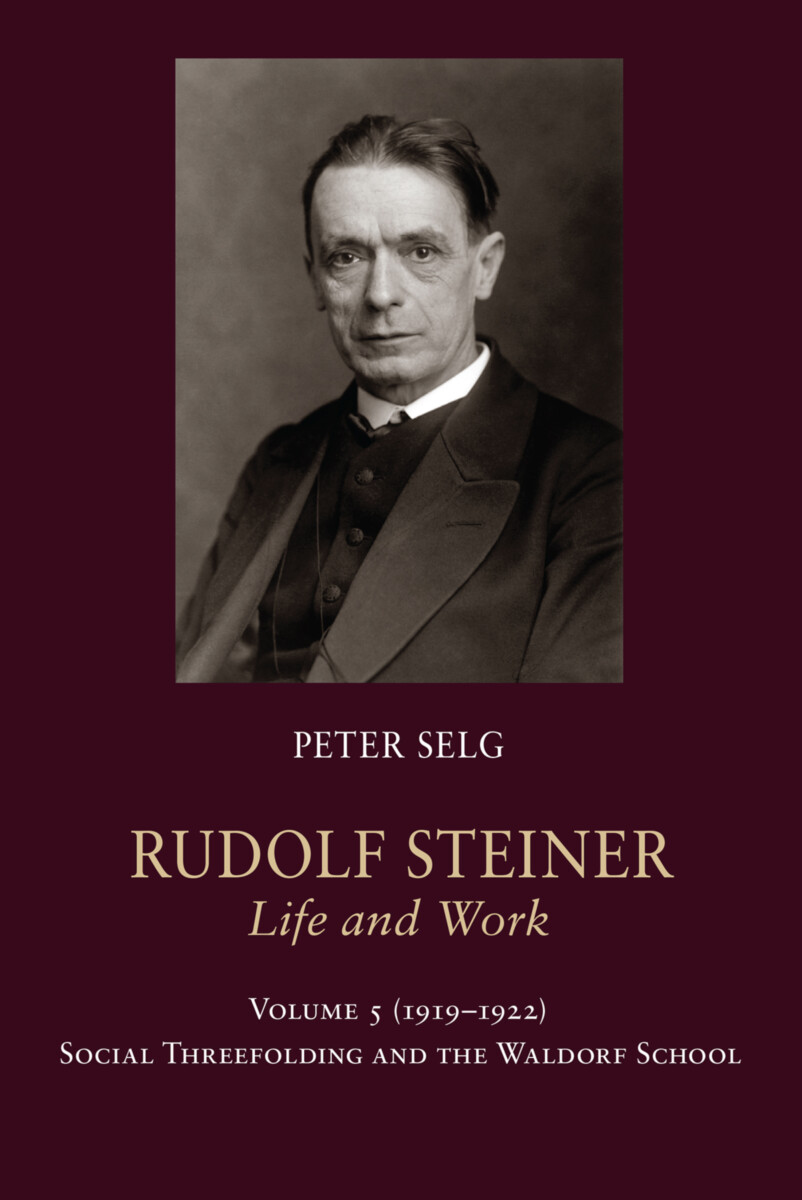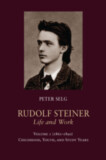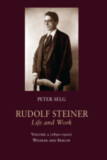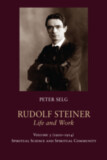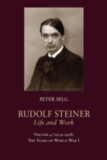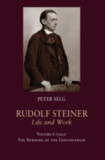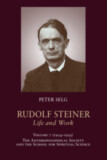Rudolf Steiner, Life and Work
1919-1922: Social Threefolding and the Waldorf School
- Publisher
SteinerBooks - Published
1st September 2017 - ISBN 9781621481935
- Pages 308 pp.
- Size 6" x 9"
- Images 34 black and white
- Publisher
SteinerBooks - Published
1st September 2017 - ISBN 9781621481942
- Pages 308 pp.
- Size 6" x 9"
- Images 34 black and white
“Try to become one with the world—that will be the best and most important ‘program.’ It is something that cannot be contained in statutes but needs to burn in our hearts as a flame.” —Rudolf Steiner
Following the widespread destruction of World War I, Europe in 1918 was faced with political, economic, and social chaos, especially in Germany. In volume 5 of his seven-volume biography of Rudolf Steiner, Peter Selg focuses on the three years following the “Great War” and Steiner’s efforts to help restructure society in a way that might avoid a recurrence of such a terrible calamity in the future. He saw the root sociopolitical and spiritual causes of the devastation and sought to change the flawed worldviews and impulses that led to the hubris behind the World War.
Rudolf Steiner thus began to concentrate on various means to renew and invigorate society, both through immediate measures—especially in his plan for a “threefold social order”—and through the new form of pedagogy that came to fruition with the Waldorf education movement. Steiner saw that a renewed form of education was necessary to the development of peaceful and healthy social conditions in the future. This education was intended to help children grow into responsible, free, and imaginative adults.
This was a time of intense work for Rudolf Steiner, including a full schedule of travel and lectures, reaching out to political leaders, training teachers for the new schools, and working with theologians and ministers toward religious renewal.
“Humanity is caught in a dreadful calamity. If humankind does not choose to embrace this new spirituality, such catastrophes will recur at—possibly quite short—intervals.” — Rudolf Steiner, March 30, 1918“The major conflicts that have evoked the disasters of the recent years have spelt cultural devastation for large parts of the earth. More conflicts lie ahead. Humanity is preparing for the next world war. And the devastation of culture will continue.” — Rudolf Steiner, December 25, 1920
Rudolf Steiner, Life and Work, Seven Volumes
Vol. 1. (1861–1890): Childhood, Youth, and Study Years
(ISBN: 9781621480822 Pbk – ISBN: 9781621480839 Hbk)
Vol. 2. (1890–1900): Weimar and Berlin
(ISBN: 9781621480853 Pbk – ISBN: 9781621480860 Hbk)
Vol. 3. (1900–1914): Spiritual Science and Spiritual Community
(ISBN: 9781621480884 Pbk – ISBN: 9781621480891 Hbk)
Vol. 4. (1914–1918): The Years of World War I
(ISBN: 9781621481577 Pbk – ISBN: 9781621481584 Hbk)
Vol. 5. (1919–1922): Social Threefolding and the Waldorf School
(ISBN: 9781621481935 Pbk – ISBN: 9781621481942 Hbk)
Vol. 6. (1923): The Burning of the Goetheanum
(ISBN: 9781621482192 Pbk – ISBN: 9781621482208 Hbk)
Vol. 7. (1924–1925): The Anthroposophical Society and the School for Spiritual Science
(ISBN: 9781621482321 Pbk – ISBN: 9781621482338 Hbk)
C O N T E N T S:
9. Social Threefolding and the Waldorf School
Cited Works by Rudolf SteinerNotes
Peter Selg
Peter Selg studied medicine in Witten-Herdecke, Zurich, and Berlin and, until 2000, worked as the head physician of the juvenile psychiatry department of Herdecke Hospital in Germany. Dr. Selg is director of the Ita Wegman Institute for Basic Research into Anthroposophy (Arlesheim, Switzerland), professor of medicine at the Alanus University of Arts and Social Sciences (Germany), and co-leader of the General Anthroposophical Section at the Goetheanum. He is the author of numerous books on Rudolf Steiner, anthroposophy, medical ethics, and the development of culture and consciousness.


